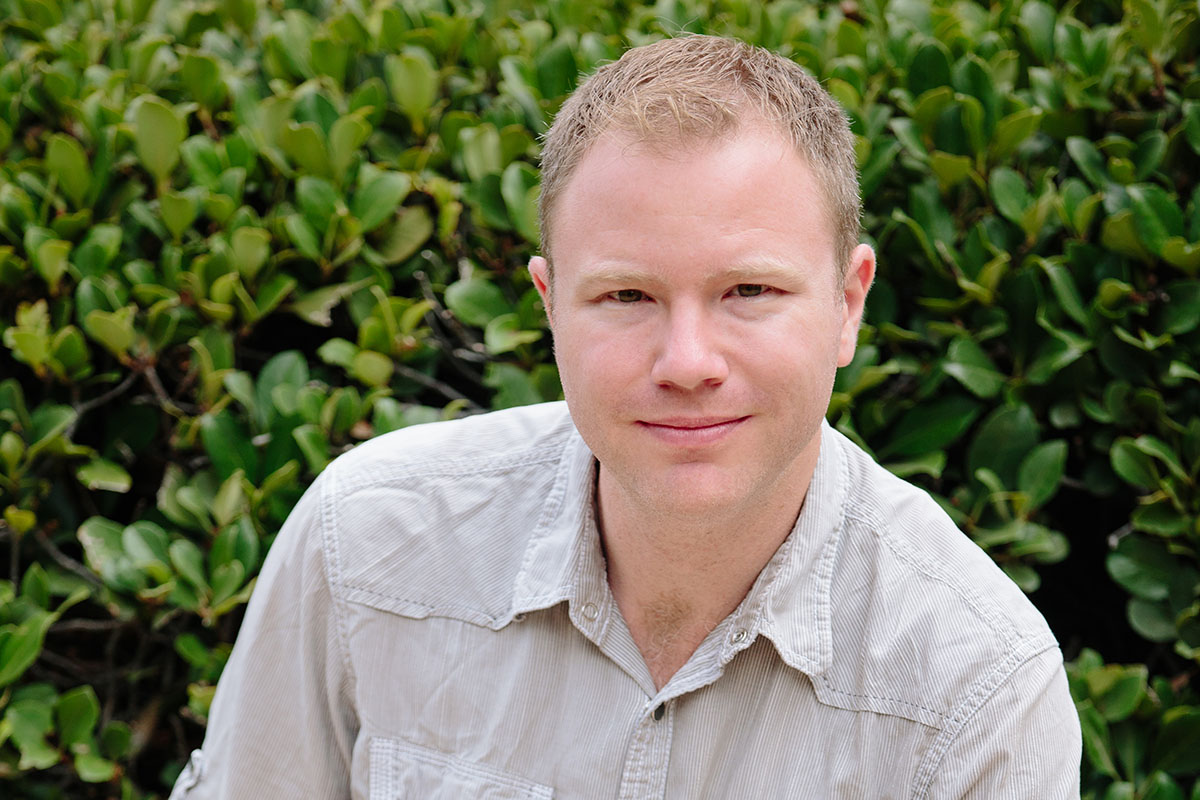Gallicchio Receives NSF CAREER Grant to Explore Quantum Entanglement
July 30, 2020
The National Science Foundation (NSF) has awarded a Faculty Early Career Development (CAREER) grant to physics professor Jason Gallicchio, an expert in experimental cosmology, the study of the origin and evolution of the universe.
The grant from the NSF Office of Multidisciplinary Activities and Quantum Information Science programs will fund the project “Using Astronomy to Improve Tests of Quantum Mechanics,” which seeks to record the time of arrival of individual photons from quasars and pulsars. Quantum mechanics is the theory that governs small individual particles of light, called photons. Photons can coordinate in various ways in pairs to get a certain result under some conditions and different results under other conditions.
“This high level of coordination that photons can exhibit, which cannot be simulated by classical (non-quantum) means, is called entanglement,” says Gallicchio, who devises new ways to conduct fundamental tests of quantum mechanics and has designed improvements for tests of quantum entanglement. “In addition to being of great fundamental importance, this coordination forms the basis for the emerging technologies of quantum cryptography and quantum computing, so it is important to probe for any limits of this coordination in the most extreme conditions over (literally) astronomical distances.”
The CAREER project, which focuses on astronomy rather than quantum mechanics, will use the hardware Gallicchio developed for earlier quantum tests to record arrival time increments from individual photons from pulsars, or fast-spinning neutron stars with extremely strong magnetic fields that produce beams of radiation across the electromagnetic spectrum. Measurements of those time increments will then allow Gallicchio and his students to examine various models related to pulsar emission and provide measurements of certain aspects of Einstein’s theory of general relativity.
“The central question that motivates all of my work is how fundamental physics can be experimentally probed,” Gallicchio says.
The project is divided into three categories: Development and Optimization of Entangled Photon Sources, Tests of Quantum Fundamentals, and Pulsar Astronomy and General Relativity. The projects will overlap, but will be developed over five-years. All experiments involve fast manipulation and detection of individual photons or pairs of entangled photons.
The CAREER award will also allow Gallicchio to modernize the College’s electronics lab course (Physics 133). Students will assist in building custom electronics for the project and actively assist with design rather than passively analyzing, building, debugging and recording results from standard circuits.
“We’ll start with small, well-defined design tasks but will deliberately scale up to an open-ended final project,” Gallicchio says. “Many research groups would benefit from new or improved instrumentation. Small instrumentation projects solicited from researchers across the HMC science departments will form the core of the list of suggested final projects.”
The Faculty Early Career Development (CAREER) Program supports early career faculty who have the potential to serve as academic role models in research and education and to lead advances in the mission of their department. Past HMC faculty recipients include engineering professor Albert Dato (2020), computer science professor Yi-Chieh (Jessica) Wu (2018), computer science professor Jim Boerkoel (2017), chemistry professor Lelia Hawkins (2015) and engineering professor Nancy Lape (2009).
NSF grants are the largest share of external support for faculty research at Harvey Mudd.
